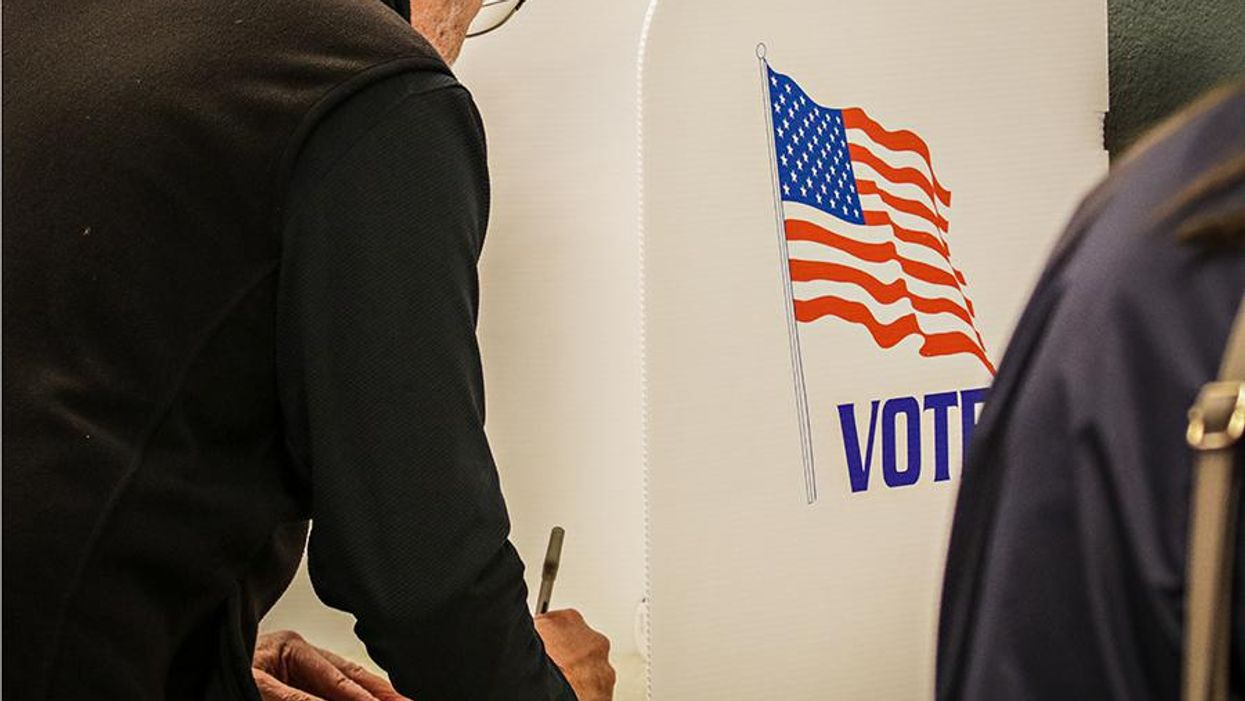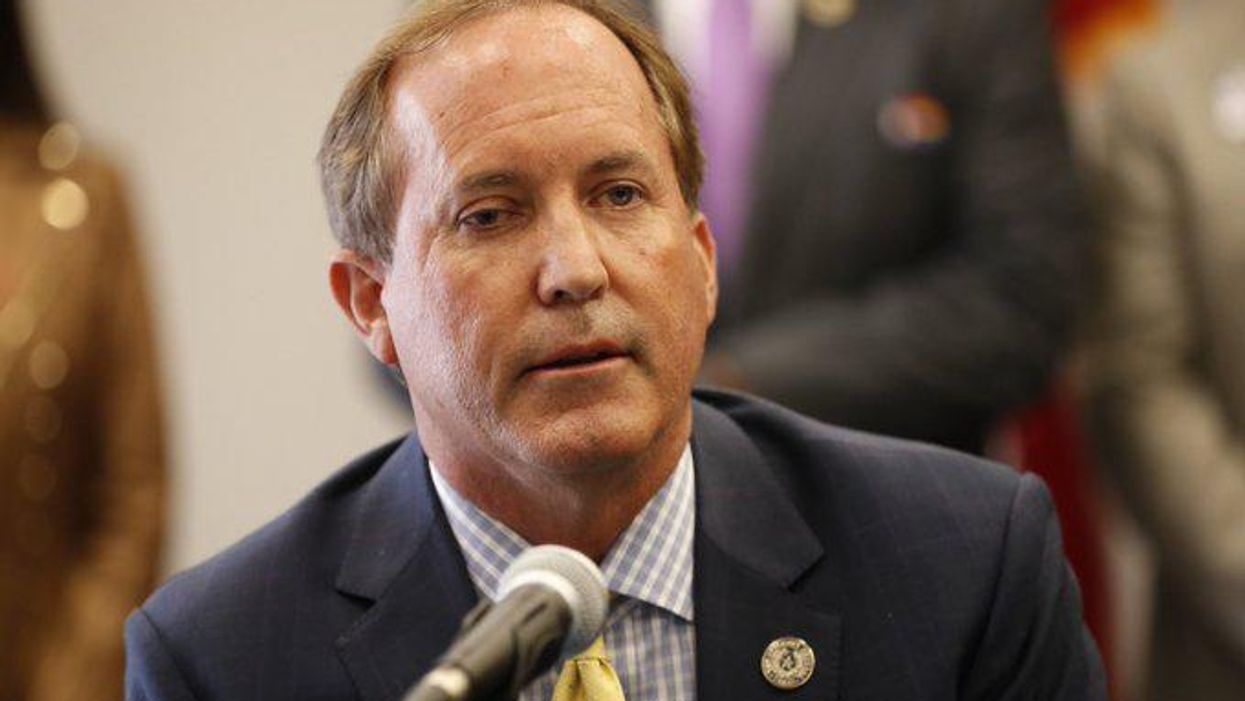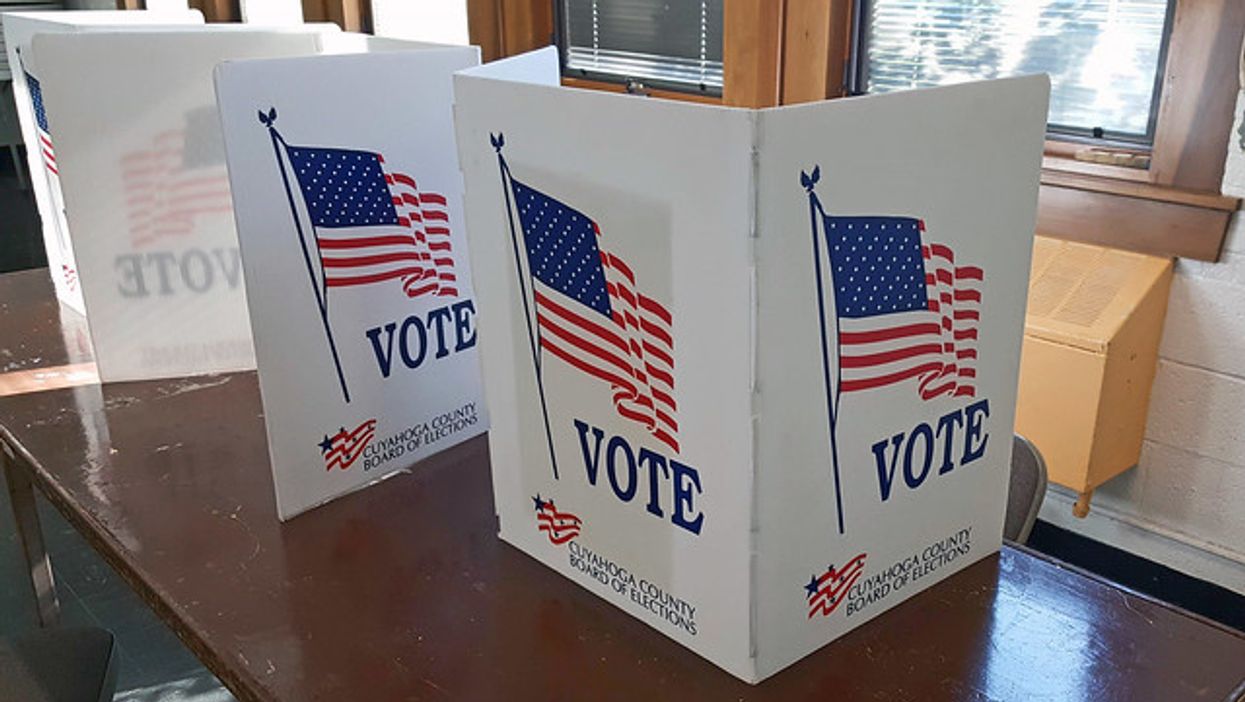As their states' top law enforcement officials, Republican attorneys general could use their broad powers to undermine the results of the 2024 presidential election with false claims of voter fraud, legal experts told the American Independent Foundation.
A Republican attorney general who is determined to undermine election results in their state would have broad authority to open investigations into claims of voter fraud, issue opinions on election law, and could even indict elections officials and poll workers, legal experts said.
Paul Nolette, a political scientist at Marquette University, said that while the state officials are not directly involved in the elections process, they could wield the legal authority granted to them by their office to interfere in the electoral process.
Attorneys general "have the broadest lanes of options and the most independence, I would argue, out of any official in state government," Nolette told the American Independent Foundation.
"I don't want to give the impression they can do whatever they want," Nolette said. "But just because they're not election officials doesn't mean that they won't have an impact on the election. And, in fact, I think they could have a substantial impact on election rules, and certainly the morass of litigation which, unfortunately, probably seems inevitable at this point in future election cycles."
Seth Masket, a University of Denver political scientist, said in a hypothetical 2024 presidential contest, a rogue attorney general could target voters and election officials with criminal charges: "If you have a state which votes narrowly Democratic but the state government is largely Republican, and the attorney general is Republican, we could see situations where the attorney general supports challenges to the way the vote was conducted, that they echo and bring forward some local concerns about the security of the vote, that they try and prosecute people for voting illegally, that they go after county clerks."
One example comes from Texas, where, in the aftermath of the 2020 election, state Attorney General Ken Paxton attempted to indict two election officials, both Democrats, on criminal charges. Grand juries in both cases declined to charge the officials, but the two cases show the powers a right-wing attorney general could exercise in pursuit of voter fraud.
"Just the attorney general's involvement in this sort of thing could have the effect of intimidating some potential voters," Masket said.
Republicans running for attorney general in states which were close in the 2020 election appear ready to take a harder line against election crimes; many have begun to stoke fears around alleged voter fraud and undermine the legitimacy of state and national elections.
Kalamazoo attorney Matthew DePerno, who is running to be Michigan's next attorney general, spread a conspiracy theory in the aftermath of the 2020 election that voting machines in northern Michigan undercounted Republican votes. Trump has endorsed DePerno in the race.
Michigan Republicans don't hold an electoral primary for the attorney general nomination and instead will meet at their state convention in April to choose a candidate for the position. While another candidate, former Michigan House Speaker Tom Leonard, currently leads in campaign contributions, DePerno could close the gap thanks to Trump's fundraising efforts on his behalf.
Republicans in Arizona and Wisconsin — where President Joe Biden won by 0.5 percent and 0.6 percent, respectively — have made the attorney general's power to prosecute election crimes a central part of their campaigns.
The front-runner for the Republican nomination in Arizona is Rodney Glassman, an attorney and former Democrat who has made conservative fears around voter fraud a key part of his campaign pitch. "Our elections need real oversight," Glassman said in his campaign announcement video. "If you cheat or commit fraud, you will be prosecuted."
Glassman has promised that, if elected, he will direct Arizona's recently formed Elections Integrity Unit to "investigate and prosecute election fraud." In the last 12 years, the Arizona attorney general's office has prosecuted and obtained convictions in just 34 cases of voter fraud.
These cases have backfired on Republicans in the past. Last September, an audit of the 2020 election results in Maricopa County that conservative activists had pushed for ended up awarding Biden 360 more votes. The Maricopa County Board voted last August to sue Republicans in the Arizona Senate for $2.8 million in damages to replace hundreds of voting machines and other voting equipment that was damaged in the audit.
Abraham Hamadeh, who is also running for attorney general in Arizona, was recently endorsed by the Koch-affiliated group FreedomWorks. Hamadeh has claimed that the 2020 election was rigged and promises to "prioritize the Election Integrity Unit and increase the number of prosecutors and investigators in order to be prepared and protect the 2024 election."
In Wisconsin, the front-runner in the Republican primary, Eric Toney, hasn't deployed the big lie explicitly. But he has gestured toward conservative anxieties about election security, saying on his campaign website that he "strongly supports improving and defending Wisconsin election laws."
Only one Nevada Republican has launched a campaign to challenge Democratic incumbent Attorney General Aaron Ford. Sigal Chattah, a Las Vegas attorney who became known for her legal opposition to the state's COVID-19 restrictions, hasn't made election integrity a major part of her campaign so far.
In 2020, Chattah donated $250 to Arizona Rep. Paul Gosar, who was alleging that Democrats were prepared to steal the presidential election. In an interview with ABC News, Chattah said that Ford hadn't investigated voter fraud extensively enough. The Chattah campaign did not return a request for comment.
Many Republican attorneys general played an important role in trying to keep Trump in office after he lost the 2020 presidential election. In December 2020, Texas' Paxton filed a lawsuit petitioning the U.S. Supreme Court to invalidate the presidential vote totals in four states: Georgia, Michigan, Pennsylvania, and Wisconsin. In all, 17 out of 25 Republican attorneys general signed on to the lawsuit.
Ten GOP attorneys general have thrown their support behind lawsuits filed by the Pennsylvania Republican Party to prevent the state from counting mail-in ballots that arrived within three days after Election Day. Those late ballots would not have swung the election in Trump's favor.
While the Supreme Court quickly rejected the Texas lawsuit, its conservative majority could potentially have the power to decide the results of the next presidential election.
Were a Republican state legislature to overturn its state's elections by recalling electors and appointing an alternative slate — as Trump and his political allies across the country pushed legislatures in Wisconsin, Arizona, Michigan, Georgia, and Pennsylvania to do in 2020 — the determination of such a ploy's constitutionality could fall to the Supreme Court. Nolette noted that attorneys general, many of whom have experience litigating before the court, "could play an important if not decisive role."
Professor James A. Gardner, a constitutional and election law professor at the University of Buffalo, said he's not confident that other state officials could constrain the power of a rogue attorney general.
"In states where there is a Democratic governor, that will make a difference," Gardner told the American Independent Foundation. "Where there is unified Republican control, my confidence is zero."
He added, "What the Republicans have repeatedly shown by their behavior is that law doesn't matter to them at all."
Reprinted with permission from American Independent












